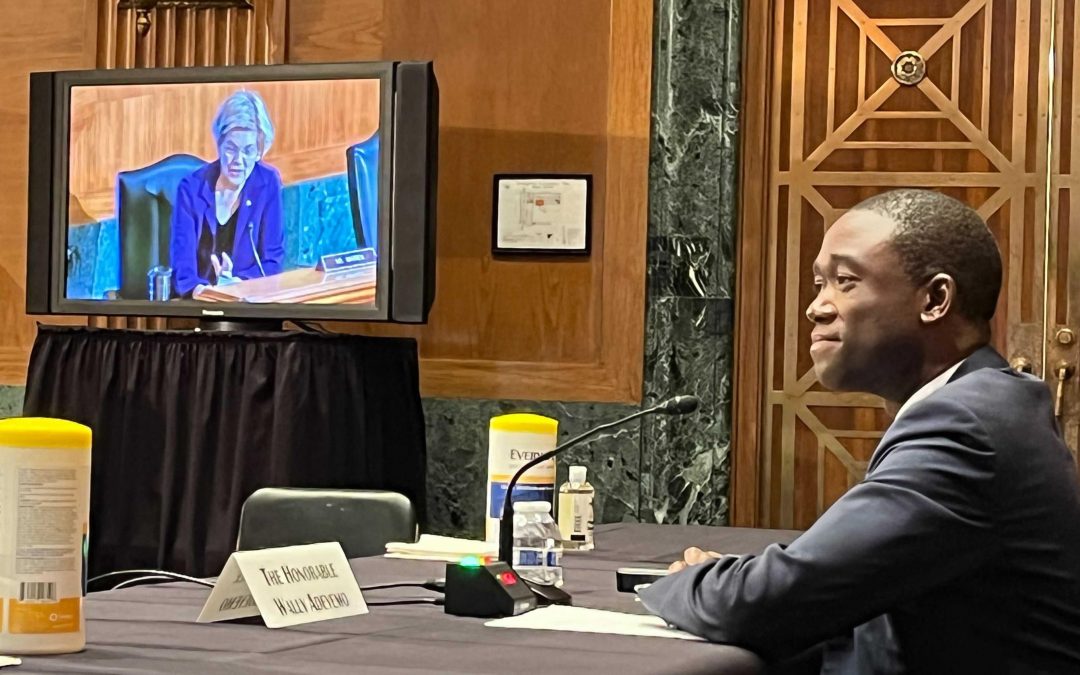WASHINGTON — A high ranking Treasury official told senators on Tuesday that increased cooperation and coordination with U.S. allies will strengthen the U.S. sanction policy.
A day after the Biden White House issued its long-awaited sanctions policy review, Deputy Treasury Secretary Wally Adeyemo went to the hill to answer questions from the Senate Committee on Banking, Housing and Urban Affairs.
“We believe it is critical that as we move forward on sanctions, we look for at every opportunity the ability to do them multilaterally,” Adeyemo said. This, he added, is the best way to prevent foreign adversaries from avoiding U.S. sanctions.
Adeyemo said that including the U.S.’ allies and partners increases the political impact of isolation, putting the country in a better position to enforce sanctions over the long-term.
“If we do not use sanctions appropriately, it will drive not only our adversaries, but a number of others to look for ways around the use of the dollar in their financial dealings,” Adeyemo said.
Which adversaries have ended up on the Biden administration’s sanction list and which have not became the focus for several senators, including ranking member Pat Toomey of Pennsylvania.
“I can’t help but note the irony of your discussing how and why it is so important that we preserve the ability to implement a sanctions regime in the future,” Toomey said, “when you and the administration choose not to implement sanctions that statute currently requires.”
In his opening statement, the Republican raised questions about why, for example, the president’s Treasury Department had not singled out Chinese purchasers of Iranian oil for mandatory sanctions.
Sen. Bob Menendez, D-N.J., said he was disappointed by the Trump and Biden administration’s discretionary measures as opposed to mandatory sanctions against China for ongoing oil dealings with Iran.
“Sanctions are only as good as they are enforced, like any other law,” Menendez told Adeyemo. “I appreciate you’re very committed, but I have to be honest with you: I don’t see the commitment in action, and so I am looking forward to the action.”
The Biden administration has been working a back-channel with China as it continues to see whether it is possible to resume nuclear talks with Iran.
“We have been approaching this diplomatically with the Chinese as part of our dialogue on Iran policy and think that, in general, this is a more effective path forward to address our concerns,” a senior U.S. official who spoke on condition of anonymity because of the sensitivity of the matter told Reuters last month.

